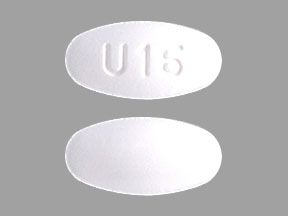
My prescription
Edit
7.5-325MG, Oxycodone-acetaminophen (90 Tablets)
Select pharmacy

CVS
$29.49
COUPON PRICE
Walgreens
$24.84
COUPON PRICE
Albertsons
$31.46
COUPON PRICE
Walmart
$223.45
COUPON PRICEOxycodone-acetaminophen savings card
Show this card to your pharmacist
Walgreens
$24.84
BIN
ID
PCN
GRP
019876
LH8289AA23
CHIPPO
LHX
Powered by
More prescriptions for pain
More prescriptions for pain
Price history for Percocet (brand) & Oxycodone-acetaminophen (generic)
90 Tablets, 7.5-325MG
Average retail price for Percocet
Average retail price for Oxycodone-acetaminophen
Average SaveHealth price for Oxycodone-acetaminophen
Our price history data is based on aggregated prescription data collected from participating pharmacies in America. Our prescription data updates daily to reflect the latest price changes. If you notice a missing data point, it means there wasn't sufficient data available to generate a monetary value for that date.
We analyzed Oxycodone-acetaminophen prices for (7.5-325MG, 90 Tablets) over the last 12 months. The average retail price was $59.31, while the average price using the SaveHealth discount card was $36.77. That's a savings of approximately 38.00% when using our Oxycodone-acetaminophen coupon.
Compared to the generic version, Percocet had an average price of $3893.51 over the same time period. With the SaveHealth savings card, Oxycodone-acetaminophen is 99.06% cheaper on average than Percocet.
*Retail prices are based on pharmacy claims data, and may not be accurate when we don't have enough claims.
Oxycodone-acetaminophen dosage forms
Dosage Quantity Price from Per unit 2.5-300MG 6 Tablets $74.89 $12.48 2.5-300MG 20 Tablets $232.14 $11.61 2.5-300MG 28 Tablets $322.00 $11.50 2.5-300MG 30 Tablets $344.46 $11.48 2.5-300MG 90 Tablets $1018.38 $11.31 2.5-325MG 5 Tablets $15.45 $3.09 2.5-325MG 8 Tablets $19.32 $2.42 2.5-325MG 9 Tablets $20.61 $2.29 2.5-325MG 10 Tablets $21.90 $2.19 2.5-325MG 12 Tablets $24.48 $2.04
| Dosage | Quantity | Price from | Per unit |
|---|---|---|---|
| 2.5-300MG | 6 Tablets | $74.89 | $12.48 |
| 2.5-300MG | 20 Tablets | $232.14 | $11.61 |
| 2.5-300MG | 28 Tablets | $322.00 | $11.50 |
| 2.5-300MG | 30 Tablets | $344.46 | $11.48 |
| 2.5-300MG | 90 Tablets | $1018.38 | $11.31 |
| 2.5-325MG | 5 Tablets | $15.45 | $3.09 |
| 2.5-325MG | 8 Tablets | $19.32 | $2.42 |
| 2.5-325MG | 9 Tablets | $20.61 | $2.29 |
| 2.5-325MG | 10 Tablets | $21.90 | $2.19 |
| 2.5-325MG | 12 Tablets | $24.48 | $2.04 |
| 2.5-325MG | 16 Tablets | $29.64 | $1.85 |
| 2.5-325MG | 20 Tablets | $34.80 | $1.74 |
| 2.5-325MG | 21 Tablets | $36.09 | $1.72 |
| 2.5-325MG | 30 Tablets | $47.70 | $1.59 |
| 2.5-325MG | 60 Tablets | $83.57 | $1.39 |
| 2.5-325MG | 90 Tablets | $124.20 | $1.38 |
| 5-300MG | 30 Tablets | $344.46 | $11.48 |
| 5-325MG | 12 Tablets | $10.36 | $0.86 |
| 5-325MG | 20 Tablets | $11.26 | $0.56 |
| 5-325MG | 30 Tablets | $12.39 | $0.41 |
| 5-325MG | 60 Tablets | $15.78 | $0.26 |
| 5-325MG | 90 Tablets | $19.17 | $0.21 |
| 5-325MG | 120 Tablets | $22.56 | $0.19 |
| 7.5-325MG | 90 Tablets | $24.84 | $0.28 |
| 7.5-300MG | 20 Tablets | $232.14 | $11.61 |
| 7.5-300MG | 28 Tablets | $322.00 | $11.50 |
| 7.5-300MG | 42 Tablets | $479.24 | $11.41 |
| 7.5-300MG | 60 Tablets | $681.42 | $11.36 |
| 7.5-300MG | 90 Tablets | $1018.38 | $11.31 |
| 7.5-325MG | 28 Tablets | $13.93 | $0.50 |
| 7.5-325MG | 60 Tablets | $19.56 | $0.33 |
| 7.5-325MG | 112 Tablets | $28.71 | $0.26 |
| 7.5-325MG | 120 Tablets | $30.12 | $0.25 |
| 7.5-325MG | 180 Tablets | $47.92 | $0.27 |
| 10-300MG | 30 Tablets | $344.46 | $11.48 |
| 10-325MG | 60 Tablets | $22.92 | $0.38 |
| 10-325MG | 90 Tablets | $29.88 | $0.33 |
| 10-325MG | 112 Tablets | $33.91 | $0.30 |
| 10-325MG | 120 Tablets | $35.03 | $0.29 |
| 10-325MG | 150 Tablets | $39.21 | $0.26 |
| 10-325MG | 180 Tablets | $43.39 | $0.24 |
